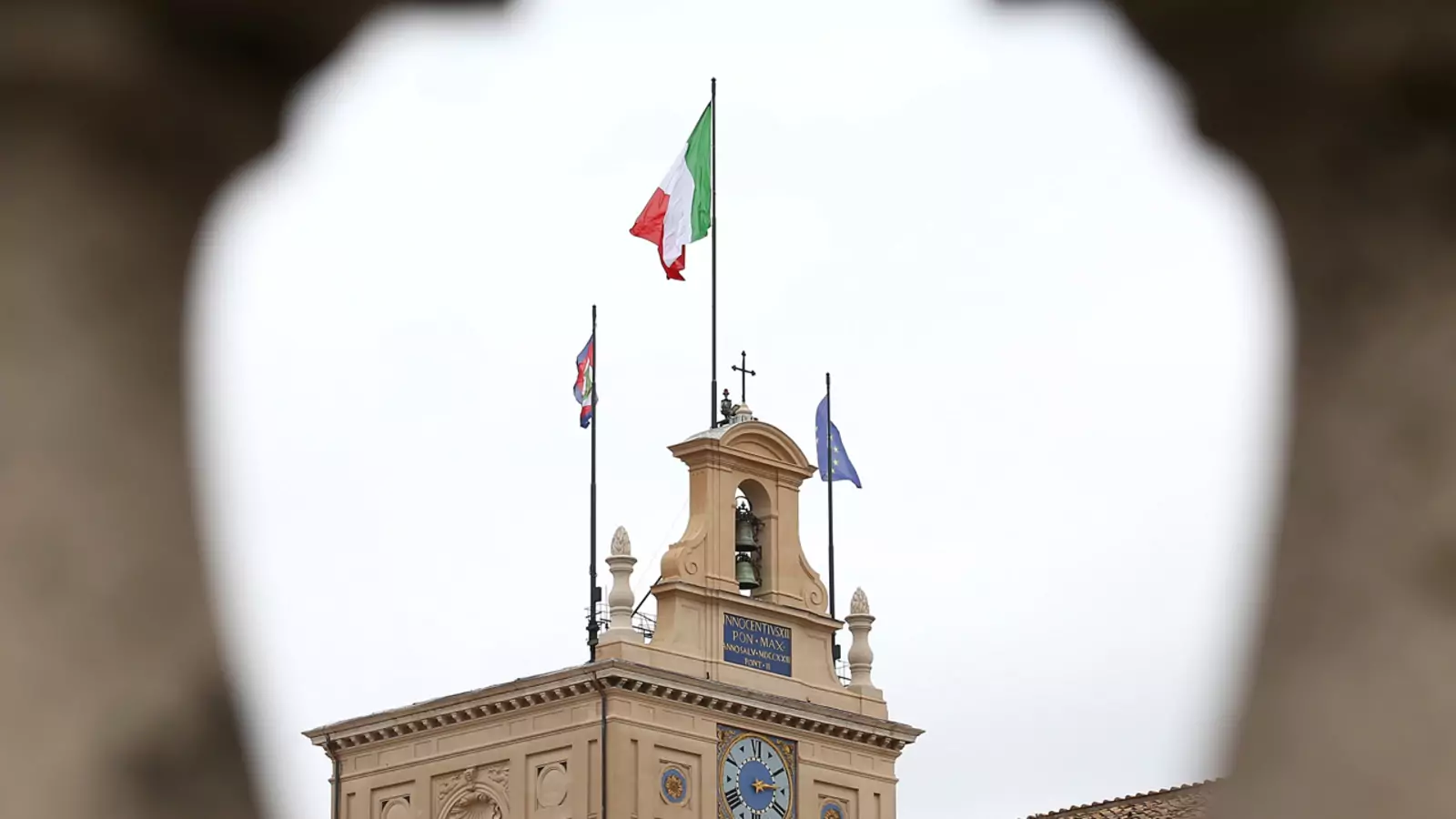Italy's New Government Could Be the Force That Finally Breaks Europe

Italy's new government could pursue a path that could have a devastating effect on Europe’s financial position
Originally published at Washington Post
May 23, 2018 12:00 pm (EST)

- Article
- Current political and economic issues succinctly explained.
Europe has weathered so many shocks — the near-breakup of the euro zone, the chaotic influx of 2.5 million refugees, the Brexit referendum — that it is tempting to dismiss the latest existential crisis unfolding in Rome. But Italy’s emerging radical-populist government could be the force that finally breaks the continent’s cohesion. When the man proposed as Italy’s new finance minister declares that “Germany has not changed its vision of its role in Europe since the end of Nazism,” it is time to wake up.
Whether or not Paolo Savona gets the finance job, there is no doubt that he represents the populists’ outlook — one that could have a devastating effect on Europe’s financial position. The two halves of Italy’s new coalition — the right-populist Northern League and the left-populist Five Star Movement — disagree on many issues, but they are united in blaming Italy’s problems generally on the European Union and specifically on the Germans. After Savona’s outburst was published in an Italian newspaper this week, Matteo Salvini, the League’s leader, took to a Roman rooftop and announced on Facebook Live that Savona is “an economist, an expert recognized in Italy and the whole world. . . . His only fault? He dared to say that this E.U. — as it is — doesn’t work.”
More on:
This growling cannot be dismissed because, if shorn of the gratuitous reference to Nazism, it contains much truth. The European Union comprises one brilliant success (a single market that facilitates trade not just in goods but also in services); a series of useful collaborations (in policing, scientific research, student exchanges and so on); one brave but politically risky principle (the free movement of people); and one outright catastrophe (the common European currency). Britain is crazy to leave the European Union, because it is not in the currency zone and its flexible labor market allows it to absorb European immigrants effectively. But Italy is different.
Indeed, Italy is the poster child for the flaws in Europe’s construction. It has amassed terrifying government debts not because it has the privilege of printing the world’s reserve currency (as the United States does); nor because it has a national central bank that can be relied upon to suppress borrowing costs (as Japan does); nor yet because it hid its borrowing behind Wall Street financial engineering and fake statistics (as Greece did). Rather, Italy has been plainly and openly reckless, because such were the incentives created by Europe’s monetary system.
Europe’s policy mix acknowledges this problem. A single central bank with a single interest-rate policy links the borrowing costs of weak and strong countries, so that the weak can run up debts too easily. Recognizing this temptation, Europe has imposed caps on government borrowing, but these have failed in two ways. First, they have ensured that the main word that national politicians hear from Brussels is “no!” — no to government pensions, no to infrastructure spending, no to teacher pay raises. Second, because any budget rule is arbitrary, the caps have not been enforced in practice. They combine maximum friction with minimum effectiveness.
Meanwhile, other European policies have actively promoted recklessness. The European Central Bank treats German government debt and Italian government debt equally, boosting the demand for Italian bonds that would otherwise be considered riskier. The central bank also encourages the presumption that, in a crisis, it would rescue Italy, dampening market discipline further. To get investors to believe Italy could plausibly default one day, Europe would have to break the “doom loop” between government and the banking system, so that the government could go bust without the banking system imploding. But that would require European-wide bank backstops. Despite much earnest discussion about centralized euro-zone deposit insurance and a euro-zone bond that banks could hold instead of dubious national bonds, neither is in the cards.
In the absence of both political discipline and market discipline, Italy has — guess what — borrowed. When the euro was launched in 1999, Italy had a ratio of public debt to gross domestic product of 105 percent; today it is 133 percent. The same incentives are evident elsewhere: In France, for example, the debt ratio has gone from 59 percent to 97 percent. When Italy’s newly elected populists promise to cut taxes and raise spending, they are merely extending the pattern. Their principal innovation is to be brazen about it — and to compare modern Germans to Nazis even as they flout German-backed deficit caps. This will only harden Northern European opposition to centralized bank backstops and so paradoxically entrench the doom loop that perpetuates those incentives for the Italian government to borrow.
More on:
How does this game end? In the short term, Europe’s economy is enjoying a cyclical upswing and the central bank is buying bonds via its quantitative easing program, so a crisis is unlikely. But in the longer term, Italy’s debt ratio seems headed into the stratosphere. When the next downturn comes, Europe may find itself dealing with a basket case many times the size of Greece during the last crisis. Greece was small enough to be containable. Italy will be too big to fail, and perhaps too big to save.
 Online Store
Online Store